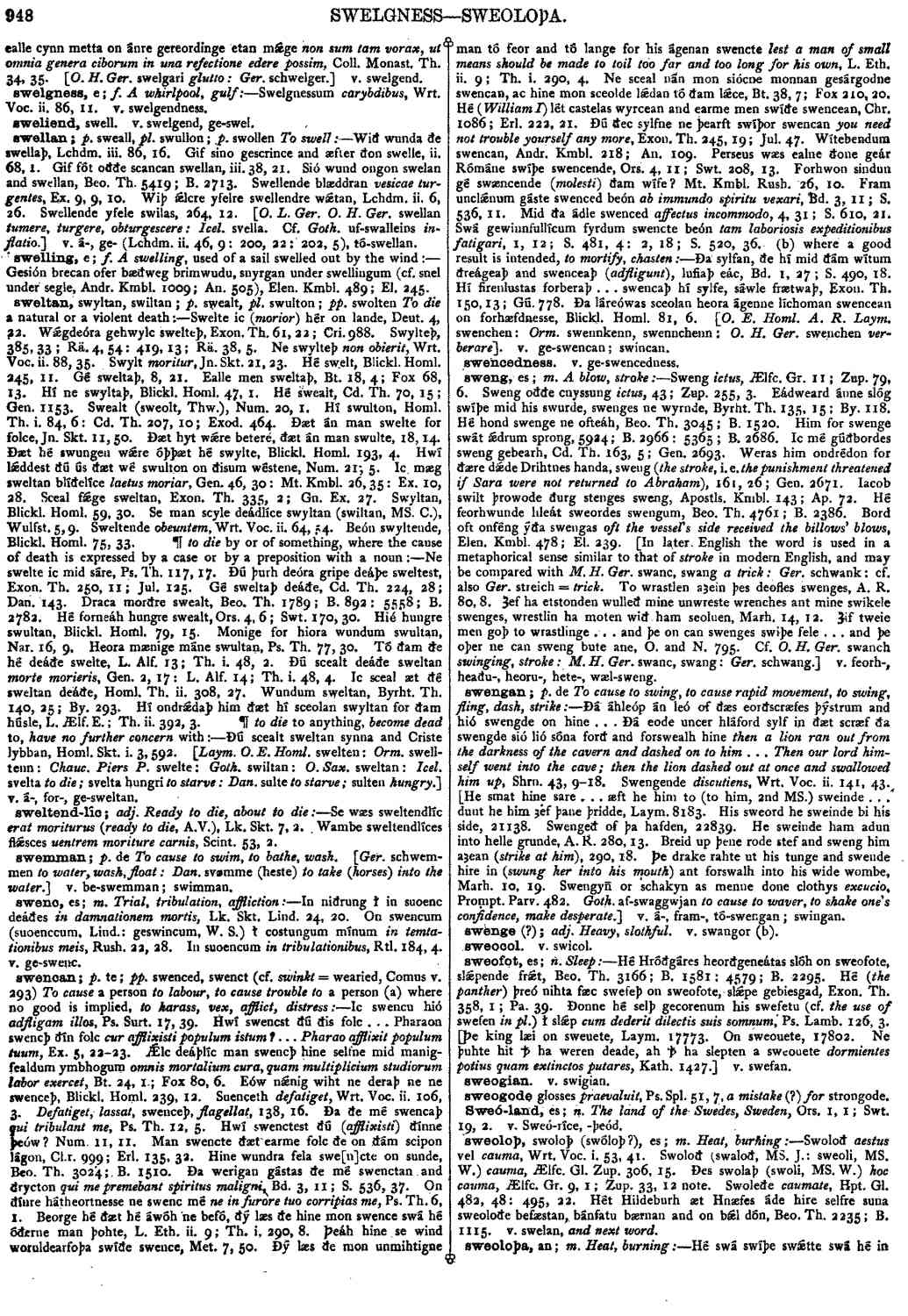sweng
- noun [ masculine ]
-
Sweng
ictus,
- Ælfc. Gr. 11; Zup. 79, 6.
-
Sweng oððe cnyssung
ictus,
- 43; Zup. 255, 3.
-
Eádweard ánne slóg swíþe mid his swurde, swenges ne wyrnde,
- Byrht. Th. 135, 15; By. 118.
-
Hé hond swenge ne ofteáh,
- Beo. Th. 3045; B. 1520.
-
Him for swenge swát ǽdrum sprong,
- 5924; B. 2966: 5365; B. 2686.
-
Ic mé gúðbordes sweng gebearh,
- Cd. Th. 163, 5; Gen. 2693.
-
Weras him ondrédon for ðære dǽde Drihtnes handa, sweng (
the stroke, i. e. the punishment threatened if Sara were not returned to Abraham ),
- 161, 26; Gen. 2671.
-
Iacob swilt þrowode ðurg stenges sweng,
- Apostls. Kmbl. 143; Ap. 72.
-
Hé feorbwunde hleát sweordes swengum,
- Beo. Th. 4761; B. 2386.
-
Bord oft onféng ýða swengas
oft the vessel's side received the billows' blows,
- Elen. Kmbl. 478; El. 239.
Bosworth, Joseph. “sweng.” In An Anglo-Saxon Dictionary Online, edited by Thomas Northcote Toller, Christ Sean, and Ondřej Tichy. Prague: Faculty of Arts, Charles University, 2014. https://bosworthtoller.com/29663.
Checked: 0